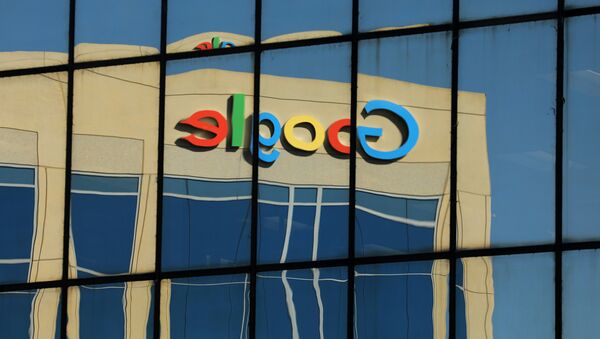According to the company, none of the suggestions were implemented. Sputnik discussed the report with Troy Hunt, a web security expert and manager of the website haveibeenpwned.com.
Sputnik: What do you think of this recent report about Google employees trying to alter search results? Apparently, there was just a discussion to do this and this wasn't done in this particular incident; do you think that this kind of practice is actually widespread, not just at Google but at other major tech companies?
Troy Hunt: The first thing is that Google said that it didn't actually make it into any production code, I think they probably shouldn't be judged too harshly on what sounds like internal discussions between a bunch of individuals. To the question of do large tech companies which have very large social presences potentially run the risk of influencing what would otherwise be unbiased views of people, this is obviously the major issue because they have a huge amount of power over the information that people see. Certainly we would all like to see balanced, unbiased, not politically motivated results come back from search engines like Google.
Sputnik: There have also been accusations that in the past that Google's been involved in showing partners' results, commercially biasing search results as well. There's a lot of potential for this kind of behavior and it seems that it's completely unregulated, for the most part.
Troy Hunt: One of the things that makes it a little bit harder is that the way search engine results work and the way search engine optimization works as well, is that it's never a clear-cut, black-and-white thing in terms of which results should be on top of others. It is very nuanced and there're a lot of different factors that can influence it. Even whether the website is served over a secure connection can have an influence on how well the site actually ranks. It is a very nuanced thing, it's hard to clearly define; but certainly if Google was caught trying to push one political agenda over another, that would likely not go ahead too well for them.
Troy Hunt: Good is subjective; so I and many other people would probably like to see a more liberal approach to things like immigration, where we could argue that it would be good to try and return results that are more open and inclusive. But it's not consistent with the views of many others, and it's also not consistent with the democratically elected leadership in the US. And regardless of whether we agree with the results or not, I think that most people would argue that results from search engines should be not politically motivated. Again, it sounds like they haven't actually implemented this, but I don't think that most of us would want to see that either. I suspect where it gets a lot more nuanced is what happens when there're majority views around what we think of the common good, but there're others who think very differently about it, there might be those from a particular religious or moral standpoint that feel that certain results shouldn't be returned higher. They're never going to keep everybody happy with this.
Sputnik: Is there any way that results are actually biased through SEOs and the way that Google is created? Is there inherently a problem with Google being biased? Because we can argue also that Google is based in Silicon Valley, an area which is known for its liberal politics; do people really understand that they're making certain biased choices when they're working in a company? Don't people automatically bias things towards their own views when doing their work?
Troy Hunt: I think we've got to be a little bit clear around what is expected commercial bias; for example, we will see ads on Google search results that are positioned very highly, but they're also clearly indicating the ads. I don't think that people have a problem with that, because that's the commercial to make sure the way Google runs. Where people get a little bit more concerned is if their ideologies, perhaps, put some results higher than others just purely based on their own views or, as you say, where they might be located geographically and what their political aims are. That may be possible, I guess it's a question of is that actually happening; is it happening implicitly just because of the views of those who work on the technology platforms, or is it a little bit more open and neutral than what some would like to have us believe?
Troy Hunt: It's an interesting time to have this discussion, because it's also a time when Google is re-entering China. The way they handle search results in a location like China is very different to the way it is in other parts of the world. I guess the difference there is that's a much more clearly regulated regime in terms of this is the way you must return results and here's what you can account search for and what you can or can't return. Will some of their implicit bias leak through to that, it's really hard to say, because it's really hard to say what is a natural organic search engine ranking position as opposed to the views of the people building a platform.





